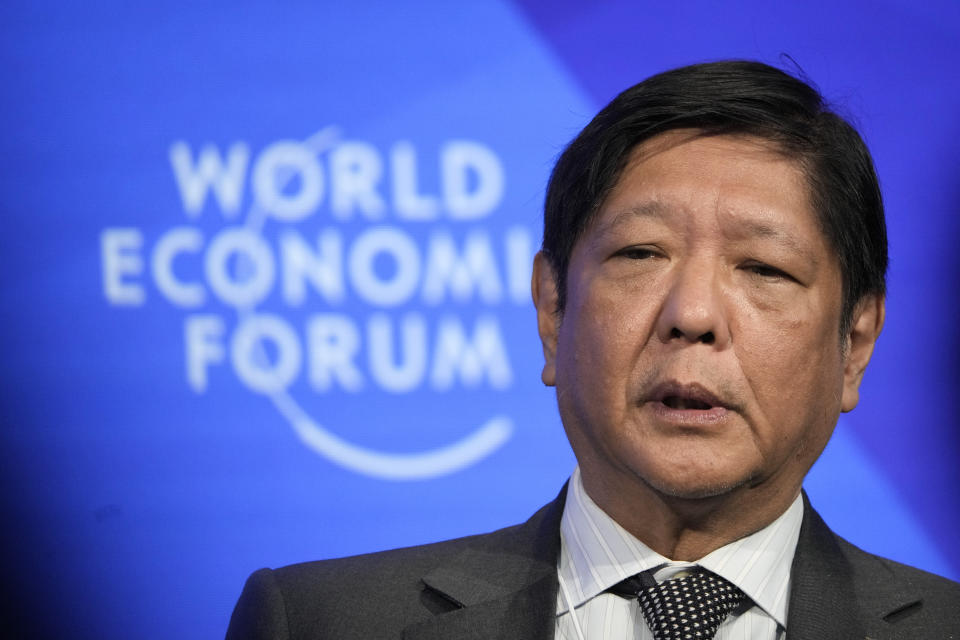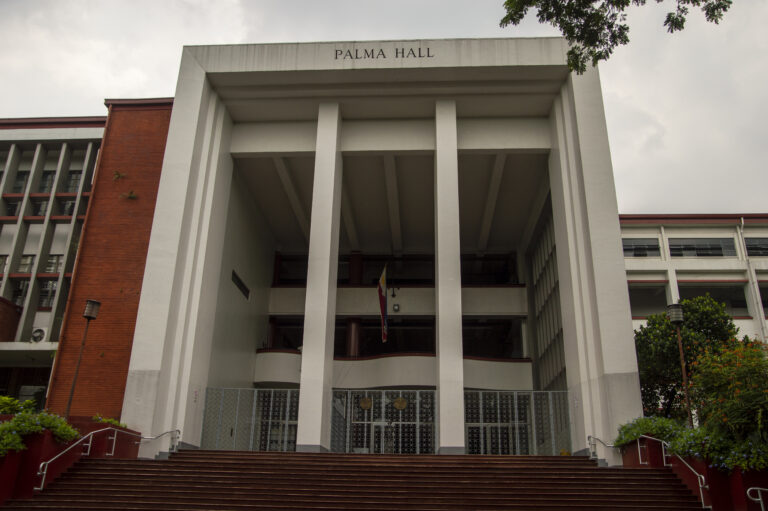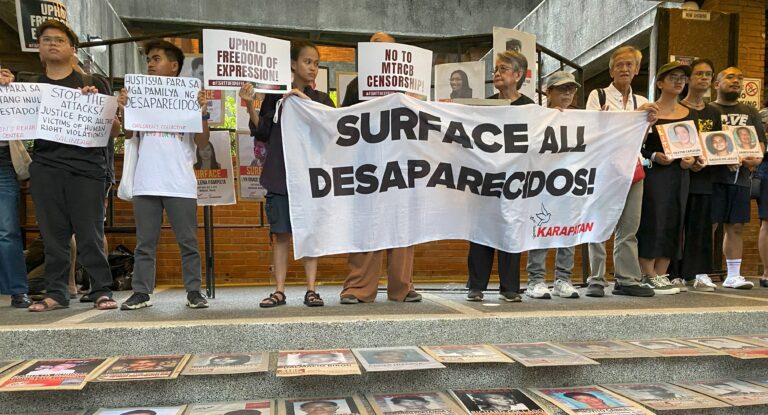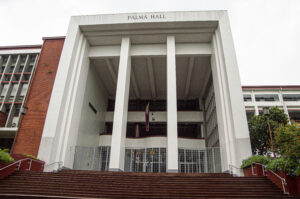
Calling for“concrete and actionable policies” that actually address the economies problems instead of an easily-exploitable wealth fund, the GASC adopted a resolution calling to “expose and oppose the adverse effects of the proposed Maharlika Investment Fund.”
Authored by the UP Diliman College of Social Science and Philosophy Student Council, UP Mindanao School of Management Student Council, UP Diliman Business Administration Council, UP Diliman School of Economics Student Council, UP Law Student Government, UPLB College of Economics and Management Student Council, and UPLB College of Forestry and Natural Resources Student Council, the resolution calls on the councils to spread awareness and strongly condemn the establishment of the MIF.
No wealth for wealth fund
Usually, the resolution authors pointed out, wealth funds are state-owned investment vehicle funded by a nation’s surplus earnings or reserves. But how can the Philippines have one, they say, when these reserves are nowhere to be found?
According to the Bureau of Treasury, the country is characterized by a national debt of P13.52 trillion which comprised 63.7% of the country’s gross domestic product as of September 2022 with an expected upward trajectory. Given the current economic development and performance, a sovereign wealth fund is unlikely to produce benefits, as the country is financially incapable of paying off its existing accumulated debt while sustaining a surplus fund.
The latest proposal instead requires the LBP to contribute P50 billion, the DBP to contribute P25 billion, PAGCOR to contribute 10% of its gross gaming revenue, and the BSP to contribute 100% of its declared dividends to fund the MIF, as the initial proposal, which called for contributions from the GSIS and the SSS, was opposed by its members due to the high risk of insolvency.
Furthermore, the Foundation for Economic Freedom (FEF) stated that there is no wealth creation when the LBP and DBP fund the MIF, even if it is to invest in government securities. Requiring the BSP to provide profits to the national government is a direct assault on its constitutional mission as an independent central bank charged with ensuring price stability and regulating exchange rate volatility.
Without the necessary reserves, experts say that the MIF will drain us of funds instead of creating them.
“The House Bill fails to realize that sequestering the dividends of GOCCs to the SWF will also impair the national government’s own ability to fund the fiscal deficit and increase the pressure to borrow more from both domestic and foreign sources,” they stressed.
Pathway to Corruption
Under another Marcos regime, the authors saw an additional concern: the MIF is a clear path to corruption.
Under the proposed bill, Maharlika funds would be exempt from any regulatory restrictions. Thus, the MIF can circumvent laws that ensure transparency and accountability for its implementation, such as the Government Procurement Reform Act, the Philippine Competition Act, and the Dividends Law of 1994.
Although legislators like house speaker Martin Romualdez have repeatedly guaranteed the public that protections will be implemented, there is broad public distrust of the regime – something to be expected given that as of 2021, the Philippines ranked 117 out of 180 nations on Transparency International’s Corruption Perception Index.. Some have even linked the MIF to the Coco Levy Fund scandal during the Marcos Sr regime, which taxed coconut farmers with the promise of boosting the coconut industry. Ultimately, the project fell victim to corruption at the hands of Marcos’ cronies, with the Coco Levy Fund estimated to have ballooned anywhere in the range of ₱100 billion to 150 billion in assets.
Similarly, critics have drawn attention to the fact that the MIF was modeled after Malaysia’s 1Malaysia Development Berhad (1MDB), where an estimated $700 million was funnelled by then-Malaysian Prime Minister Najib Razak.
Because of these issues, alongside an overall lack of transparency, the resolution authors to say that the MIF will only become another corruption source for the Marcos-Duterte regime.
GASC Exposes and Condemns the MIF
Given all of these problems with the bill, the assembly resolved to:
- Spread awareness and strongly condemn the establishment of the Maharlika Investment Fund in its current form;
- Call for concrete and actionable policies from the Marcos administration that seeks to improve the economic situation of the country and protect the funds of the Filipino people, as opposed to the proposed investment fund with a high risk of corruption and mismanagement;
- Spearhead seminars, educational discussions, and other related activities to create platforms and spaces that allow for the further discussion of the Maharlika Investment Fund and its corresponding implications to the livelihood of the Filipino people;
- Release informative publications, infographics, videos, and other related materials to, foremost, make data along with legislative and economic jargon more accessible to and more understandable for the Filipino people, and ultimately, to further the knowledge and awareness of the constituency on the short-term and long-term implications and possible dangers of the approval of the Maharlika Investment Fund Act;
- Actively engage and involve its constituents and individuals to participate in all efforts, activities, and mobilizations that aim to inform and educate the public about the importance of being involved and informed about the Maharlika Investment Fund Act;
- Call for an inclusive and sustainable utilization and appropriation of public funds that prioritizes health, social protection, and infrastructure; reforming our pension system; and improving the country’s governance and institutions at large;
- Campaign for financial transparency, integrity, and accountability in budget usage to ensure that it is truly for the benefit of the Filipino people.
The student councils join many other progressives in opposing the proposed MIF who have said that the government should instead use the funds to meet the needs of Filipinos.
“Ang sovereign wealth funds ay ginagawa lamang ng mga bansa kapag may surplus silang pondo. Kumbaga sa mga indibidwal, makakapagtabi ka lang naman ng pang investments kung sobra pera mo sa pagkain at iba pang mga pangangailangan diba? Ganun din sa isang bansa: Maraming gutom, walang trabaho, kailangan ng ayuda, may pandemya pa, etc.—May ipapang invest pa ba sa lagay na yan?” said ACT Teachers Partylist Rep. France Castro in a statement.
They also said that if the government is in serious need of funds, it should not make workers shoulder the risk.
“If the government really is so serious to raise revenues, a billionaire wealth tax or windfall real estate land value tax on just the few thousand richest Filipinos and few hundred largest firms are much more logical alternatives,” stated IBON Foundation Executive Director Sonny Africa.
Africa said that instead of helping Filipinos, the bill would only concentrate power and money in the hands of a “shady politicized cabal.”
“The misprioritization of public resources, poor social and development returns, and strong possibility of misuse and abuse are more than enough reason to reject the Maharlika fund proposal. This is aside from how it is suspiciously being railroaded by the most powerful — if not also the biggest and most corrupt — political dynasty in the country today,” he said.
#GASC54
Featured image courtesy of Gerard Carreon







